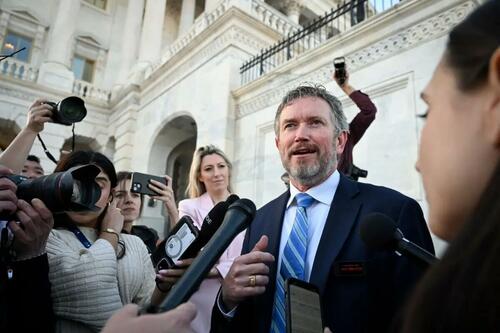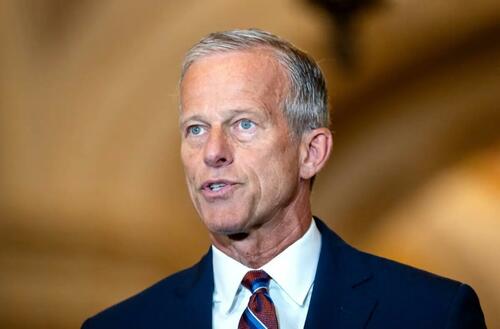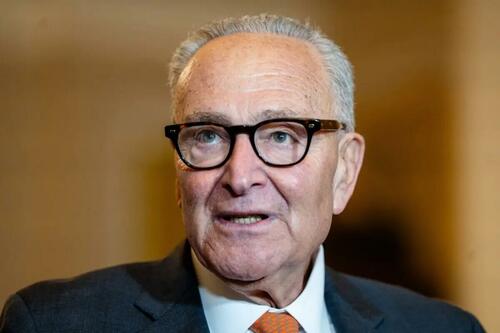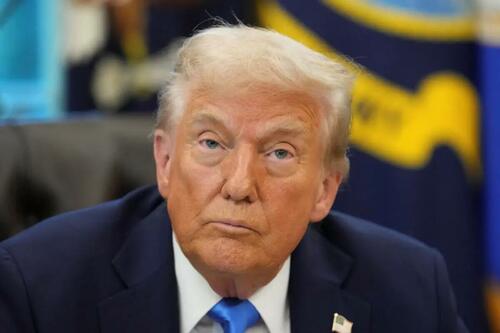

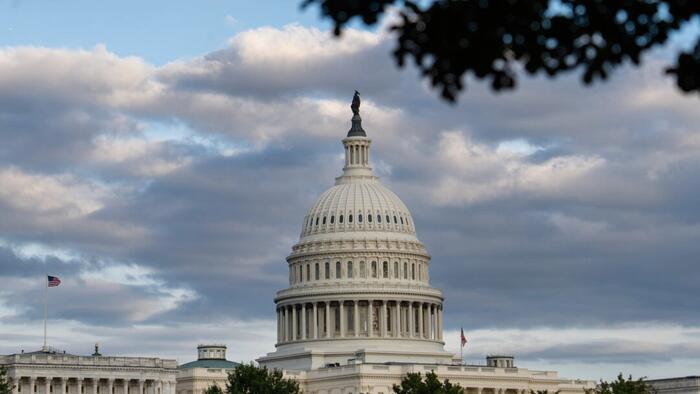
Authored by Joseph Lord via The Epoch Times,
With the deadline for a government shutdown less than a week away, there’s no clear agreement between the two major parties on how to move forward.
Government funding is set to expire on Sept. 30. Republicans have been broadly united in their support of a clean continuing resolution (CR), Washington terminology for a stopgap funding bill. President Donald Trump has also backed a clean CR.
Republicans cannot keep the government open on their own. Under Senate rules, Republicans will need the support of multiple Democrats in that chamber to avert a government shutdown, and Democrats have placed conditions on their support.
With both sides entrenched in their positions, it’s unclear how lawmakers will reach an agreement to keep the government open.
Here’s what to know.
A government shutdown occurs when Congress fails to fund one or multiple sectors of the federal government.
Every year, Congress must pass a total of 12 spending bills for various areas of federal appropriations, such as funding for defense, agriculture, education, and other outlays.
So far, Congress has not sent any of those finalized funding bills to Trump’s desk.
Government funding expires at the end of a fiscal year, Sept. 30.
Currently, the government is being funded through a CR, which Republicans passed in March, punting the government funding deadline to the normal Sept. 30 date.
U.S. Rep. Thomas Massie (R-Ky.) speaks to the press outside the U.S. Capitol, as the only Republican to vote against passing the House legislation to fund the government through Sept. 30 and avert a shutdown, on March 11, 2025. Roberto Schmidt/AFP via Getty Images
The minority party often uses government funding deadlines as an opportunity to win policy concessions or other demands from the administration.
Trump and other Republican leaders have pushed for the passage of a clean CR, which describes a stopgap funding bill that largely keeps numbers at their previous levels without the addition of many additional bill riders or new appropriations.
“The CR is simply a means to an end; it is a way to fund the government until you have an opportunity to do the appropriations process,” Senate Majority Leader John Thune (R-S.D.) said at a Sept. 19 press conference.
Majority Leader Sen. John Thune (R-S.D.) speaks to reporters at a press conference on Capitol Hill in Washington on Sept. 3, 2025. Madalina Kilroy/The Epoch Times
Last week, House Republicans passed such a bill in a 217–212 vote. It would extend government funding for around seven weeks, pushing the deadline to Nov. 21.
Two Republicans, Reps. Thomas Massie (R-Ky.) and Victoria Spartz (R-Ind.), voted against the bill.
Rep. Jared Golden (D-Maine) crossed the aisle to vote with Republicans. Rep. Marie Gluesenkamp Perez (D-Wash.) didn’t vote, but said she supported a CR in a post on X.
The proposal was rejected by the Senate after it failed to garner enough support to overcome the 60-vote filibuster threshold, as was a competing proposal put forward by Democrats.
Senate Minority Leader Chuck Schumer (D-N.Y.) has said Democrats won’t give their backing unless Republicans agree to modify the health care sections of the One Big Beautiful Bill Act, which cut nearly a trillion dollars in Medicaid spending.
Those Medicaid cuts helped offset the cost of making the bill’s tax cuts for top earners permanent, which would make it difficult for Republicans to accept Democrats’ demands even if they were open to the proposal.
Republican backers of the bill say that its Medicaid cuts solely targeted waste, fraud, and abuse.
Senate Minority Leader Chuck Schumer (D-N.Y.) speaks to reporters at a press conference on Capitol Hill in Washington on Sept. 3, 2025. Madalina Kilroy/The Epoch Times
Democrats have pointed to Congressional Budget Office estimates that more than 10 million Americans will lose coverage under the bill and highlighted the potential impact the plan could have on small rural hospitals.
In exchange for their backing of a funding bill to keep the government open, Democrats are demanding an extension in subsidies for low- and middle-income Americans who purchased health insurance through the Affordable Care Act, otherwise known as Obamacare.
They propose reversing Medicaid cuts included in the One Big Beautiful Bill Act.
The Democrats’ alternative CR, rejected by the Senate, would have carried out these aims.
Thune has criticized these demands.
“The suggestion by the Democrats that somehow they ought to be able to hijack a continuing resolution to attach a trillion dollars of policy ... is completely out of any historical context of what continuing resolutions have been used for in the past,” Thune said.
And of course, Elibabeth Warren can't face reality:
With Republicans dug in on a clean CR, and Democrats dug in on rescinding key provisions of the One Big Beautiful Bill Act, it’s unclear what comes next in the ongoing standoff.
On Saturday, Schumer and House Minority Leader Hakeem Jeffries (D-N.Y.) asked Trump for a meeting.
On Sept. 17, Schumer said that Democrats “don’t have a red line” and are willing to discuss a way forward.
“We will sit down and negotiate if they will sit down and negotiate,” Schumer said.
Trump has encouraged Republicans to hold in their insistence on a clean CR.
U.S. President Donald Trump in the Oval Office at the White House on Sept. 19, 2025. Ken Cedeno/Reuters
In a post on Truth Social, Trump encouraged Republicans to “stick TOGETHER to fight back against the Radical Left Democrat demands” by voting in favor of a clean CR.
“Congressional Republicans, including Leader John Thune and Speaker Mike Johnson, are working on a short term ‘CLEAN’ extension of Government Funding to stop Cryin’ Chuck Schumer from shutting down the Government,” Trump said.
“Democrats want the Government to shut down. Republicans want the Government to OPEN.”
Compounding the difficulties of reaching an agreement, most of Congress is currently out of town.
The Senate isn’t expected to return until Sept. 29, while the House isn’t scheduled to return until October.
Unless Democrats reach an agreement to vote on the clean CR passed by the House last week, Republicans could face a choice between a government shutdown and an early return to Capitol Hill.

